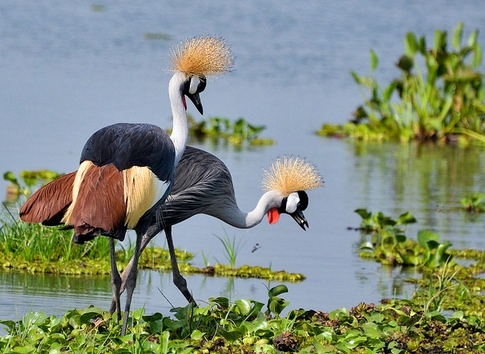When is the best time to go on an African Safari
When is the best time to go on an African Safari. Embarking on an African safari is a bucket-list experience that promises thrilling wildlife encounters, breathtaking landscapes, and an immersion into the wonders of nature. However, choosing the right time to embark on this epic journey can significantly impact the quality of your safari experience. In this blog post, we will delve into the factors that influence the best time to go on an African safari, allowing you to make an informed decision and maximize your adventure.
Wildlife Migration: One of the most awe-inspiring events in Africa is the Great Migration, where millions of wildebeest, zebras, and other herbivores traverse the Serengeti ecosystem in search of fresh grazing grounds. Witnessing this natural phenomenon is a dream for many safari-goers. The migration typically occurs between Tanzania’s Serengeti National Park and Kenya’s Maasai Mara Reserve, with the timing varying each year. The best time to witness the Great Migration depends on your specific destination, but generally, the months of July to October offer incredible opportunities to witness this spectacle.
Dry and Wet Seasons: Africa’s climates vary across its vast landscapes, and understanding the dry and wet seasons in different regions is crucial when planning your safari. The dry season, characterized by low rainfall and sparse vegetation, is often considered the prime time for game viewing. From May to October, countries like Botswana, Kenya, Tanzania, and Zambia experience less rainfall, leading animals to gather around water sources, making them easier to spot. Moreover, the reduced vegetation allows for better visibility.
Birdwatching Opportunities: Africa boasts an impressive array of bird species, making it a haven for birdwatchers. If birdwatching is a priority, the wet season is generally the best time to visit. During this time, from November to April, migratory bird species arrive in Africa, resulting in a vibrant burst of colors and melodious calls. Birdwatching enthusiasts will find their paradise in countries like Botswana’s Okavango Delta or Zambia’s South Luangwa National Park.
Avoiding Crowds: For those who prefer a more intimate safari experience with fewer tourists, timing your visit during the shoulder seasons can be advantageous. These are the periods between the peak and off-peak seasons when the number of visitors tends to be lower. In East Africa, the shoulder months are March, April, May, and November, while in Southern Africa, the shoulder seasons typically fall in April, May, and November.
Special Wildlife Sightings: If there are specific wildlife species you hope to see during your safari, it’s essential to consider their behavior and breeding patterns. For instance, if you wish to witness newborn animals, visiting during the calving season might be ideal. In some areas, this occurs from December to March. Alternatively, if you’re interested in predators like lions and leopards, the dry season increases the chances of spotting them as they gather near water sources to hunt.
Conclusion: Choosing the best time to go on an African safari depends on several factors, including the Great Migration, dry and wet seasons, birdwatching opportunities, crowd levels, and specific wildlife sightings. By considering these factors and aligning them with your preferences and priorities, you can ensure an unforgettable safari experience. Whether you’re captivated by the Great Migration, desire excellent game viewing, or crave the melody of birdsong, Africa eagerly awaits your exploration, offering an adventure of a lifetime.


0 Comments